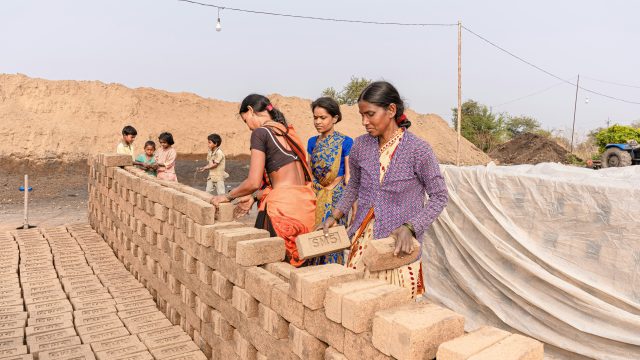Why 2025 is a crucial year for debt and climate justice
A mountain of debt is burying the global south - could 2025 be the year that creditors finally demolish this unjust burden?

Across the Global South, unsustainable debt is deepening poverty, fuelling inequality and driving climate vulnerability – but 2025 represents a unique and urgent opportunity to address this unjust burden. Leaders from debtor nations are making bold demands for debt justice, campaigners are bringing together a huge global movement, and the crucial Financing for Development Conference is on the horizon. This year could be a turning point for tackling the debt crisis, but it will require real political will and action from all governments – including creditors. This momentum could not have come at a more urgent time.
The scale of the crisis
Global South countries’ debt payments to external creditors are at their highest in 30 years. According to OECD and World Bank figures, the Global South now repays more in debt servicing than it receives in grants and loans, by about $50 billion a year. The overall financial flow is from the world’s lowest-income countries to the world’s richest, as has been the case for decades.
Many debtor countries are cutting public spending to meet these payments, often spending more on debt than on education and health. Currently, Global South countries are spending five times more on debt payments than on addressing the climate crisis.
“ Under the IMF, the World Bank and the G20, the current debt system incentivises irresponsible lending and borrowing, lacks accountability and transparency, and offers no viable, fair and just path out of debt crises for Global Soth countries.”
Debt burdens and resulting austerity measures are also fuelling political instability. Governments unable to meet people’s demands for dignified living conditions respond to discontent with repression and increasingly authoritarian measures that undermine democracy and people’s rights.
At the same time, some highly indebted countries are turning to fossil fuel exploitation to raise the foreign currency needed to meet debt payments, locking in high-carbon development pathways and worsening the climate emergency. Urgent action is clearly needed to prevent the debt crisis from further exacerbating poverty, inequality, political instability and climate breakdown.
What needs to change
While the impacts are severe, the solutions are already clear. First, Global South countries urgently need debt cancellation, across all creditors. Existing processes, such as the G20’s Common Framework, are failing – no country has yet completed the Common Framework and received debt relief.
The main blockers are private creditors: hedge funds, oil traders and banks. They have been allowed to stall, delay and seek maximum profit in negotiations, slowing relief and limiting the amount of cancellation countries can secure. They can also sue governments for not meeting debt payments: South Sudan lost a case in the UK High Court in May, while Ethiopia's bondholders have also threatened legal action.

Nearly all Global South countries’ external debt contracts with private creditors are governed under UK or New York law. New legislation in these jurisdictions would ensure that private creditors participate fairly in debt restructuring and prevent them from suing debtor governments. In the UK, we are calling on the UK government to introduce a new Debt Justice Law that would do just this.
However, debt cancellation alone is not enough. The international debt system must also be reformed. Under the auspices of the International Monetary Fund, the World Bank and the G20, the current debt system incentivises irresponsible lending and borrowing, lacks accountability and transparency, and offers no viable, fair and just path out of debt crises for Global Soth countries. It also excludes indebted governments from a fair seat in decision-making processes, perpetuating colonial power dynamics. Without systemic reform, debt crises will simply continue to pile up, even if current debt is cancelled.
Calls for systemic reform
This is why Global South governments and civil society groups are calling for a UN Framework Convention on Sovereign Debt. Such a convention would address inequalities in the debt system, prevent irresponsible lending and borrowing that fuel repeated crises, and introduce a multilateral sovereign debt resolution mechanism to ensure just and fair debt resolution when crises do occur.
This motion is on the table at the upcoming Fourth Financing for Development Conference (FfD4) – the first of its kind in ten years. Countries in the African Union and the Alliance of Small Island States have set out strong proposals for a convention within the conference negotiations, and they continue to push for them, even in the face of resistance from Global North governments that prioritise creditor interests over communities and insist that there is no debt crisis.
Building momentum for change
By securing debt cancellation and transforming the debt system, Global South countries and communities can direct resources to urgent needs, including tackling the climate emergency. Debtor countries would no longer have to prioritise debt payments over people and planet, or exploit fossil fuels to service debt. The unprecedented mobilisation and political openings of 2025, including the FfD4 conference, make this a year of immense potential for advancing both debt justice and climate justice.
- Tess Woolfenden, Debt Justice


